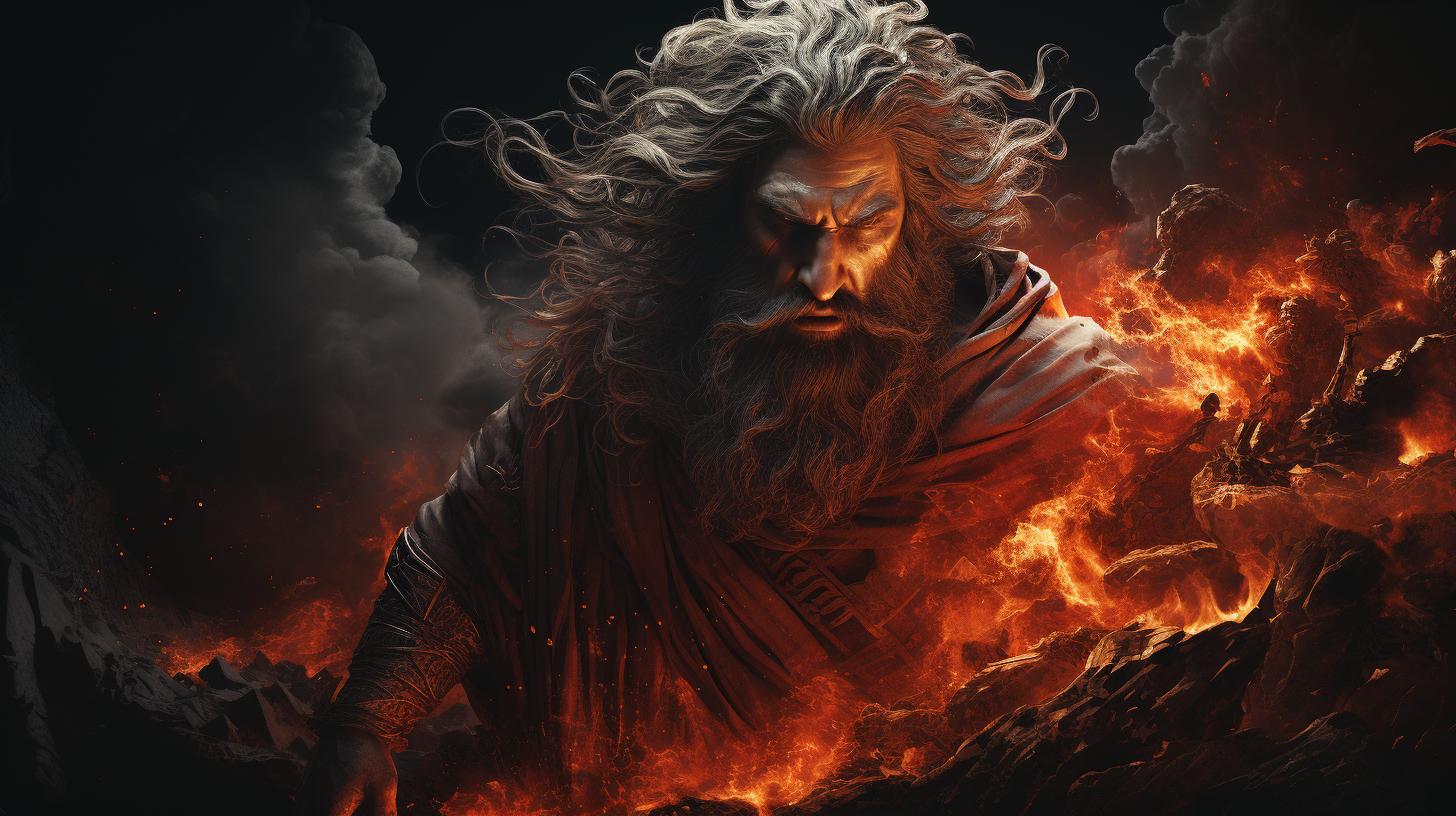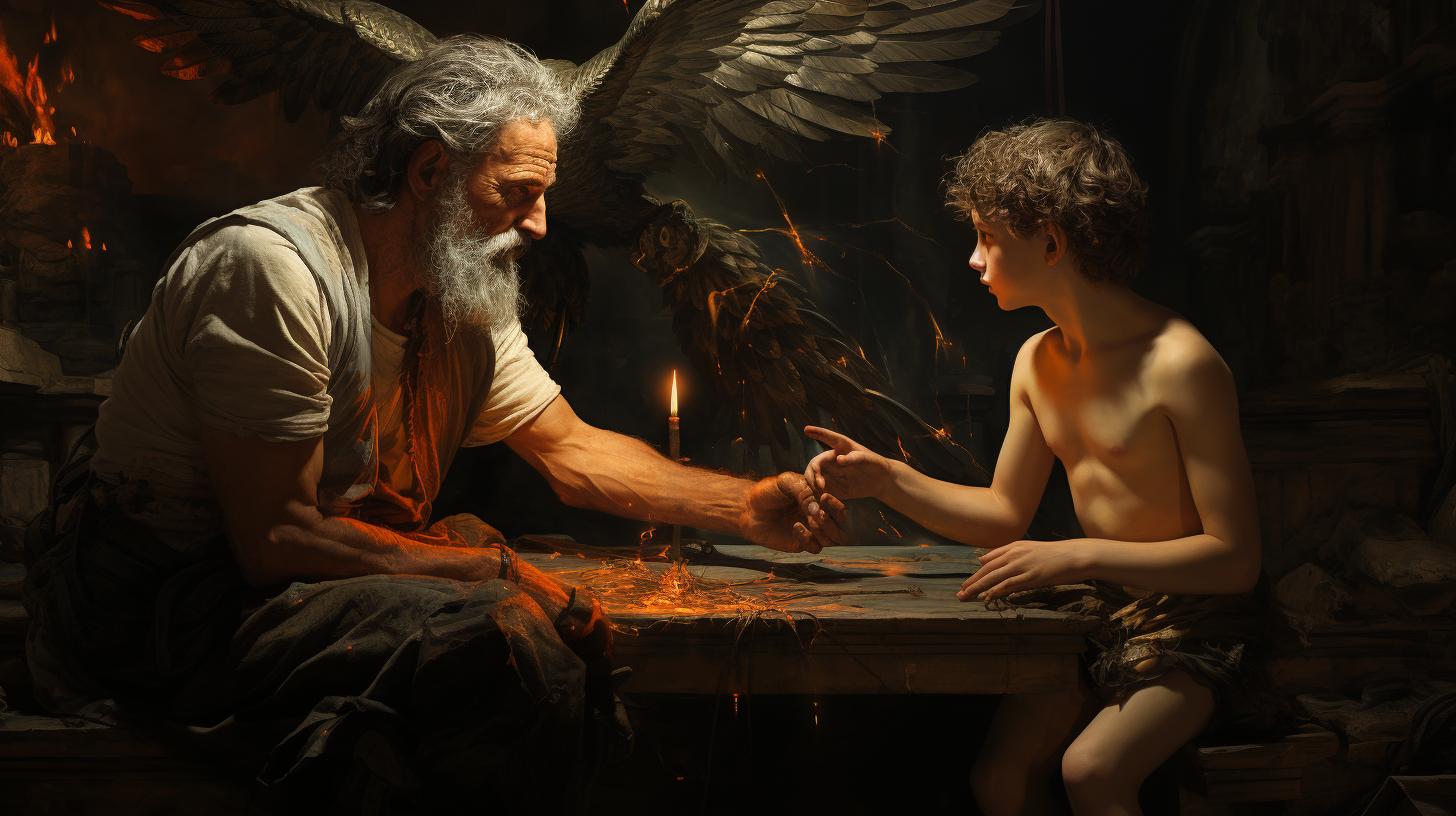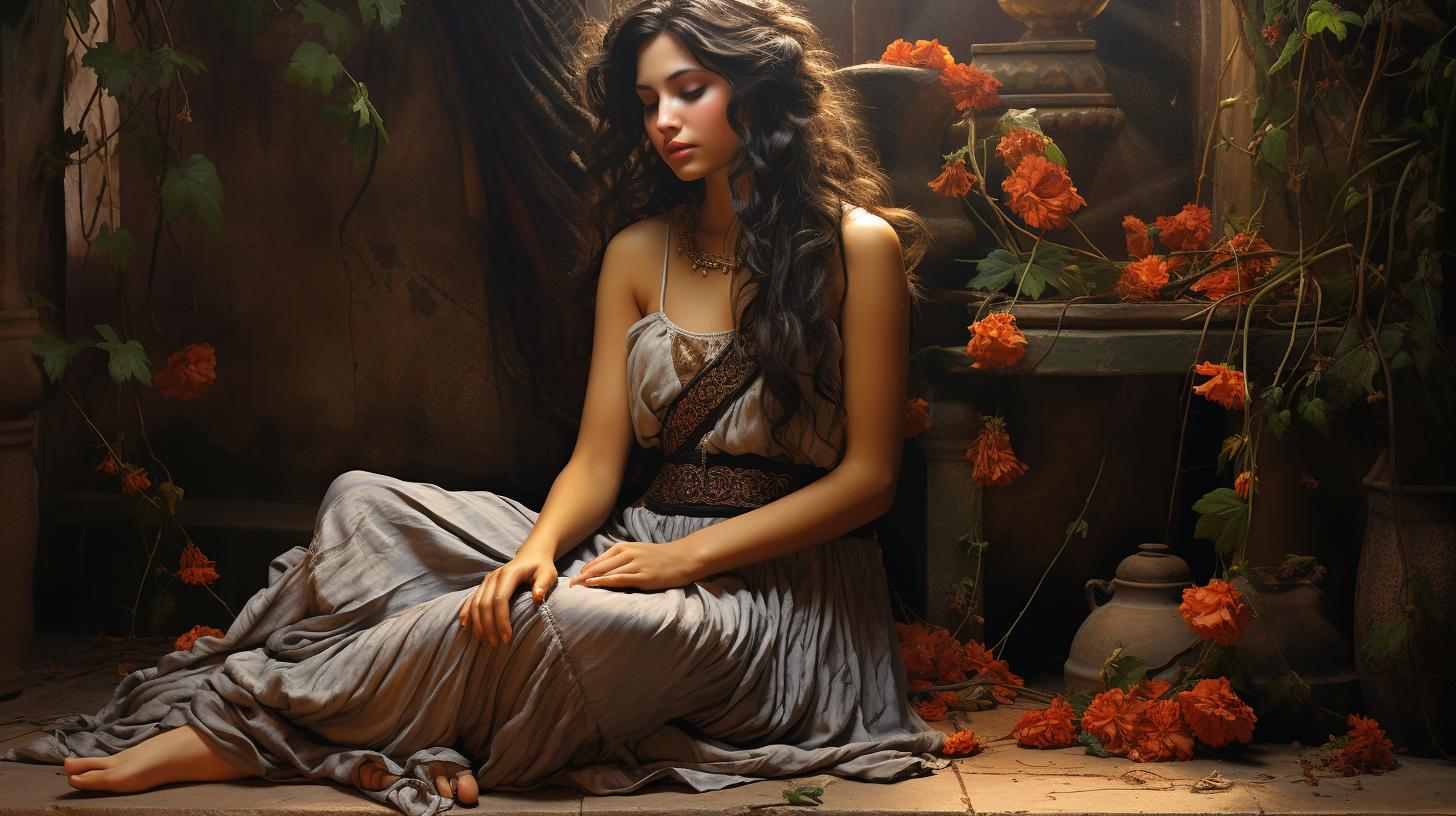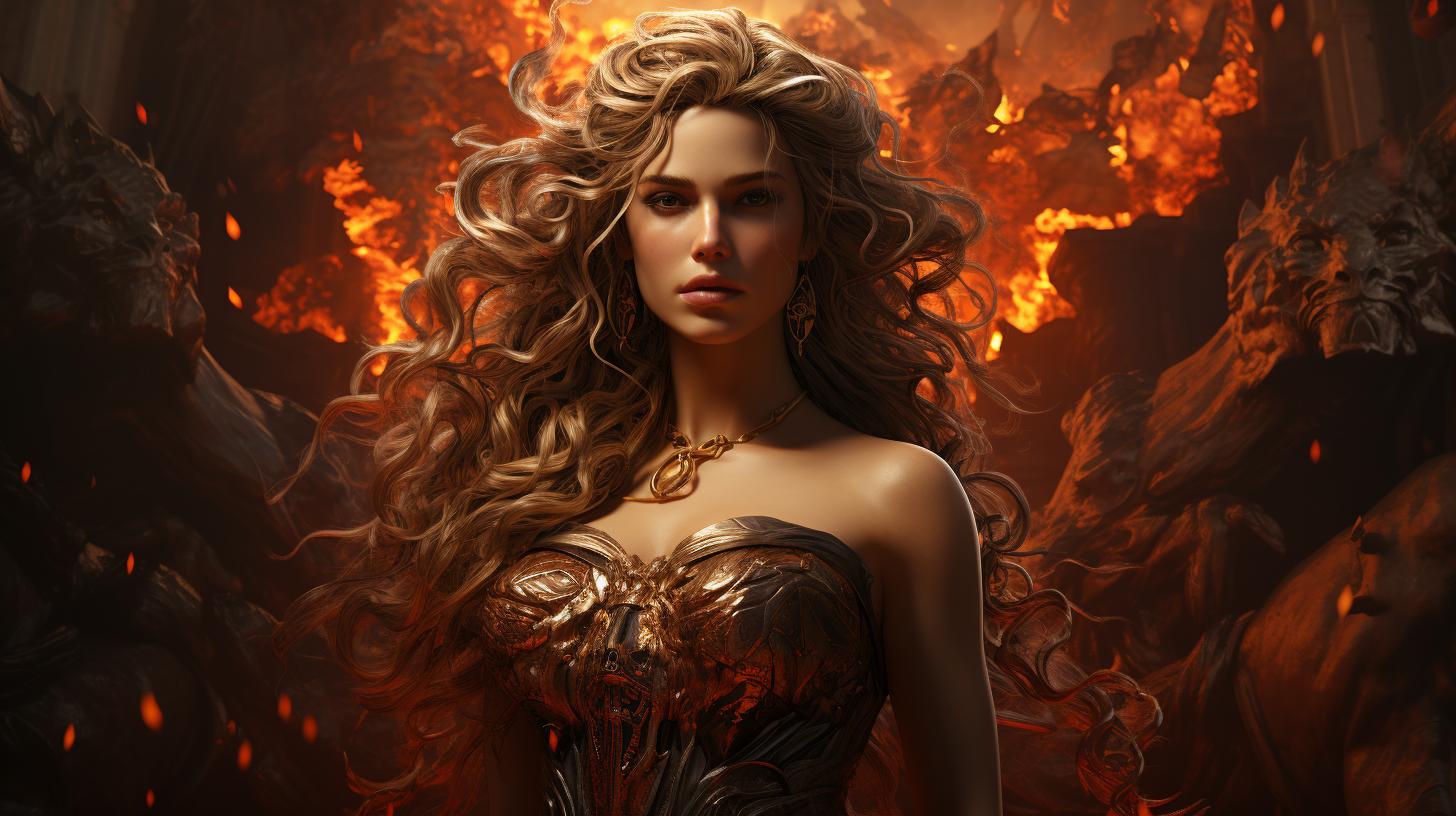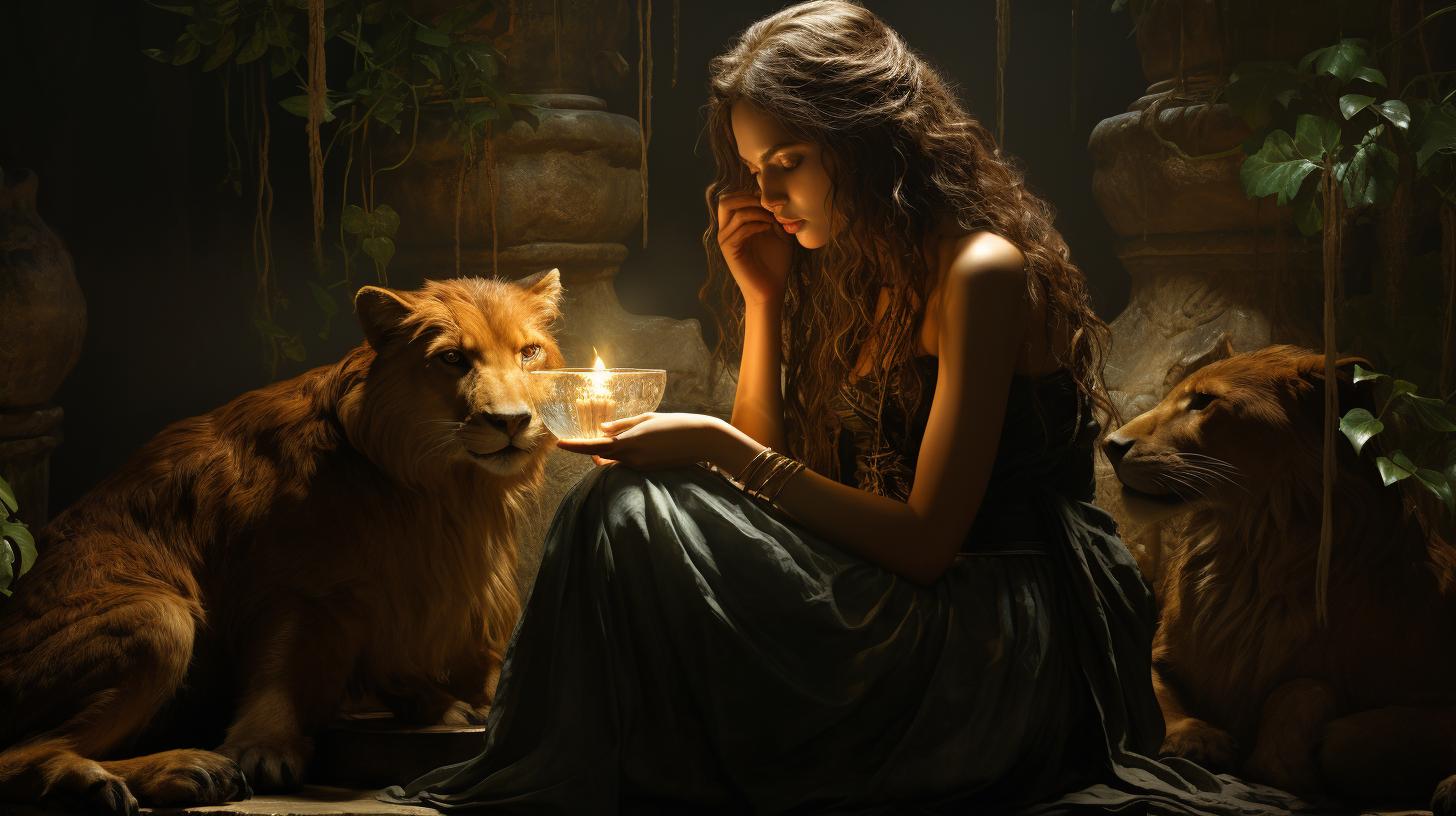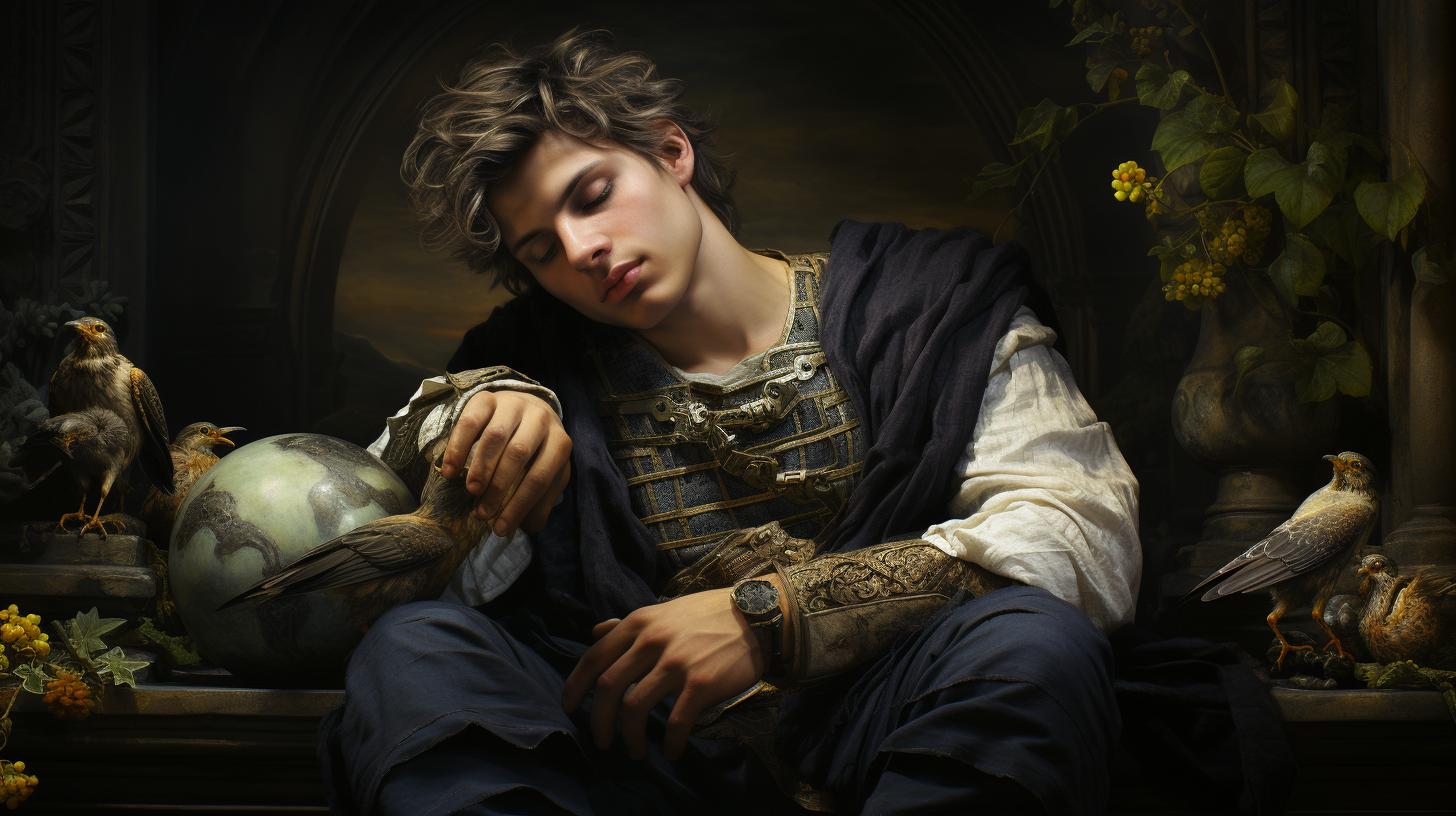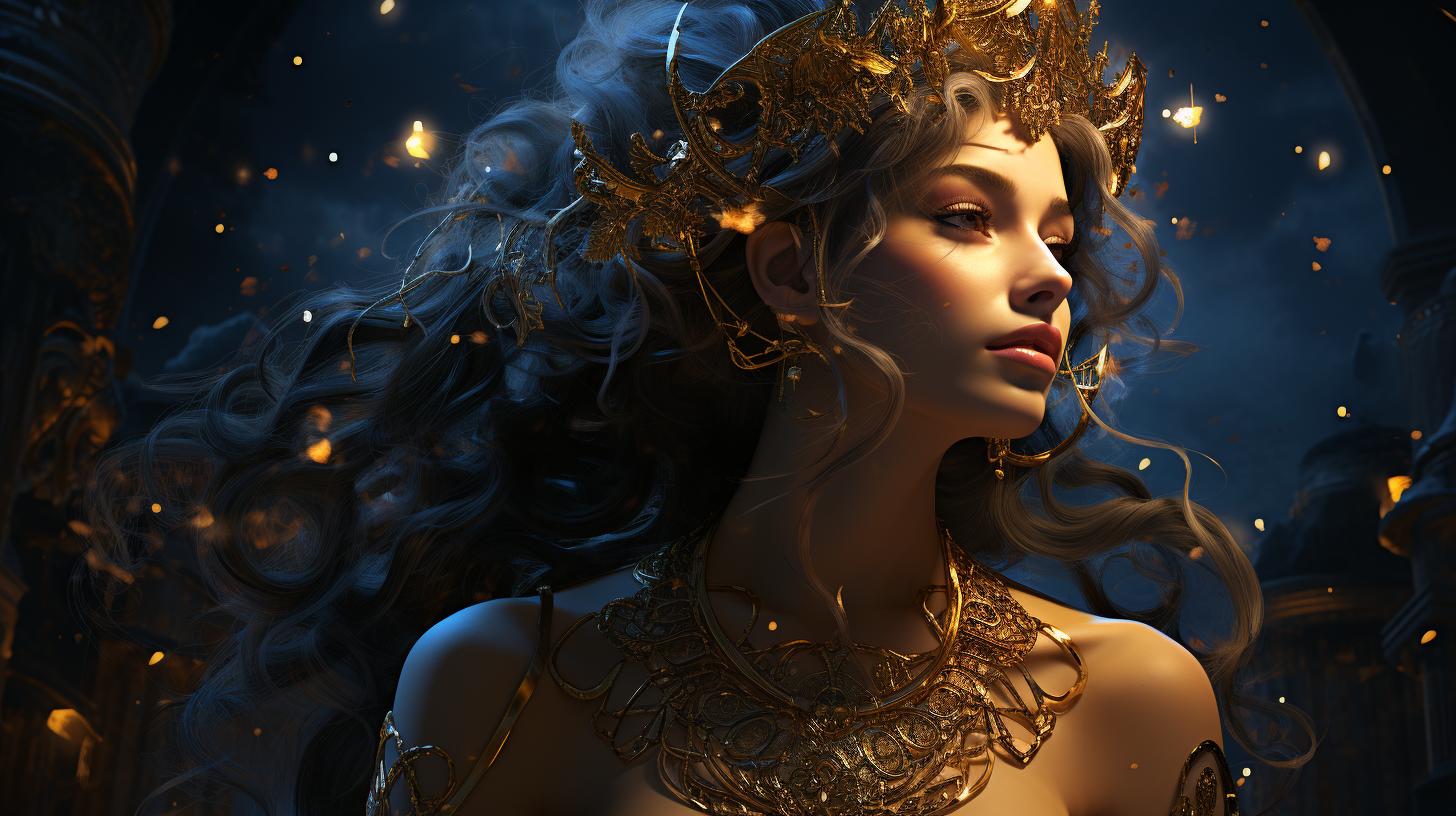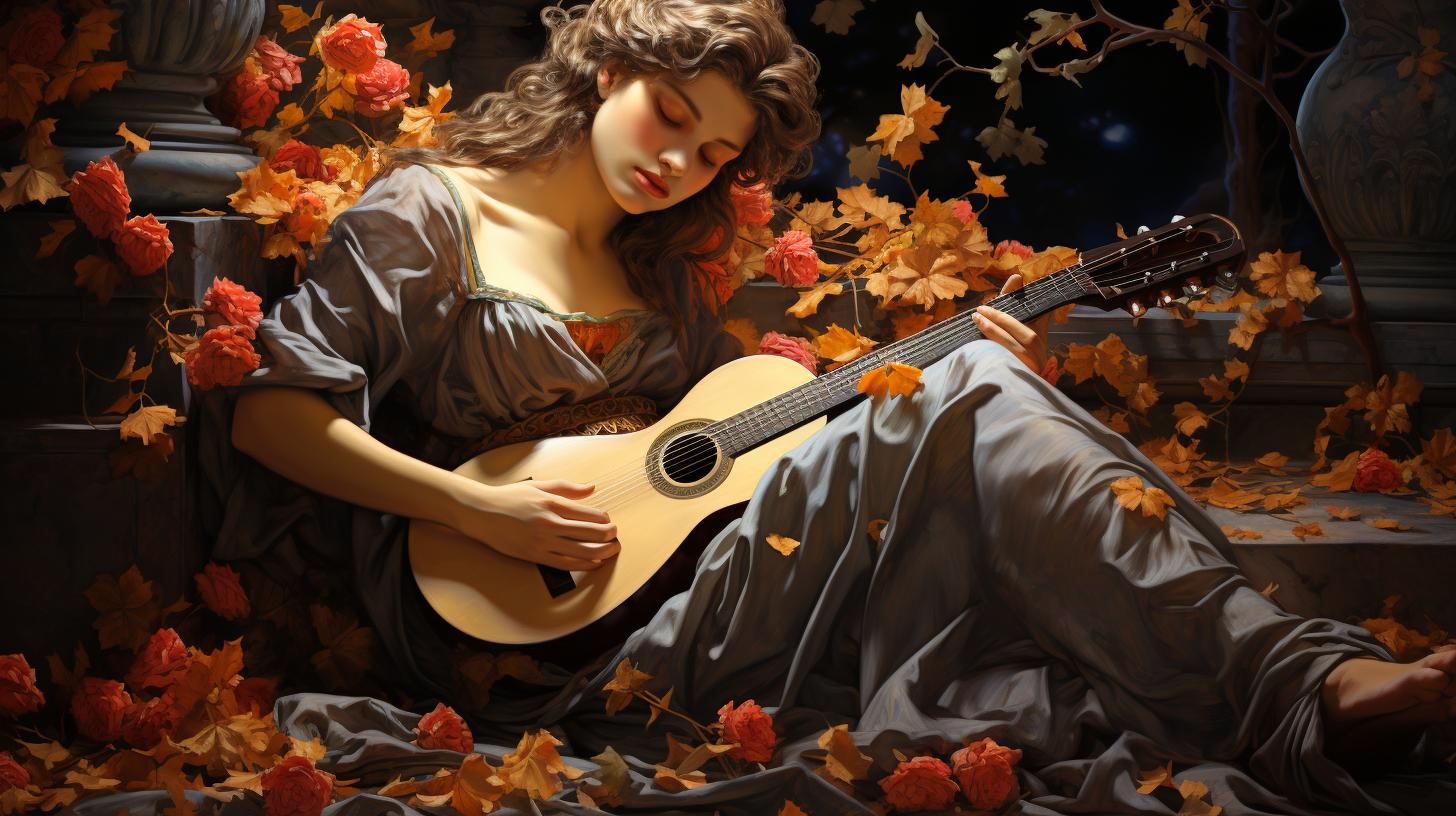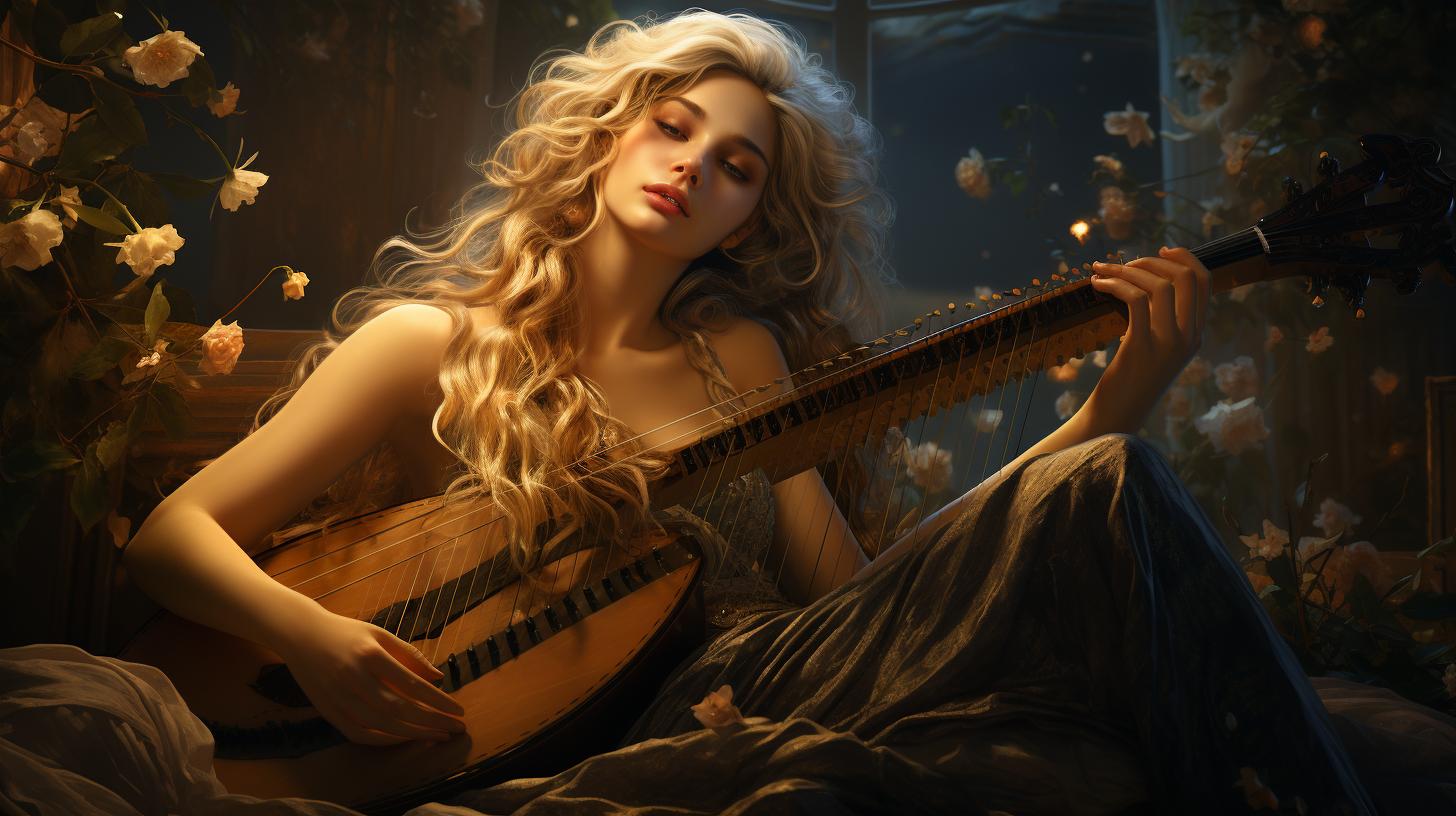Phobos: The Fearful God of Greek Mythology
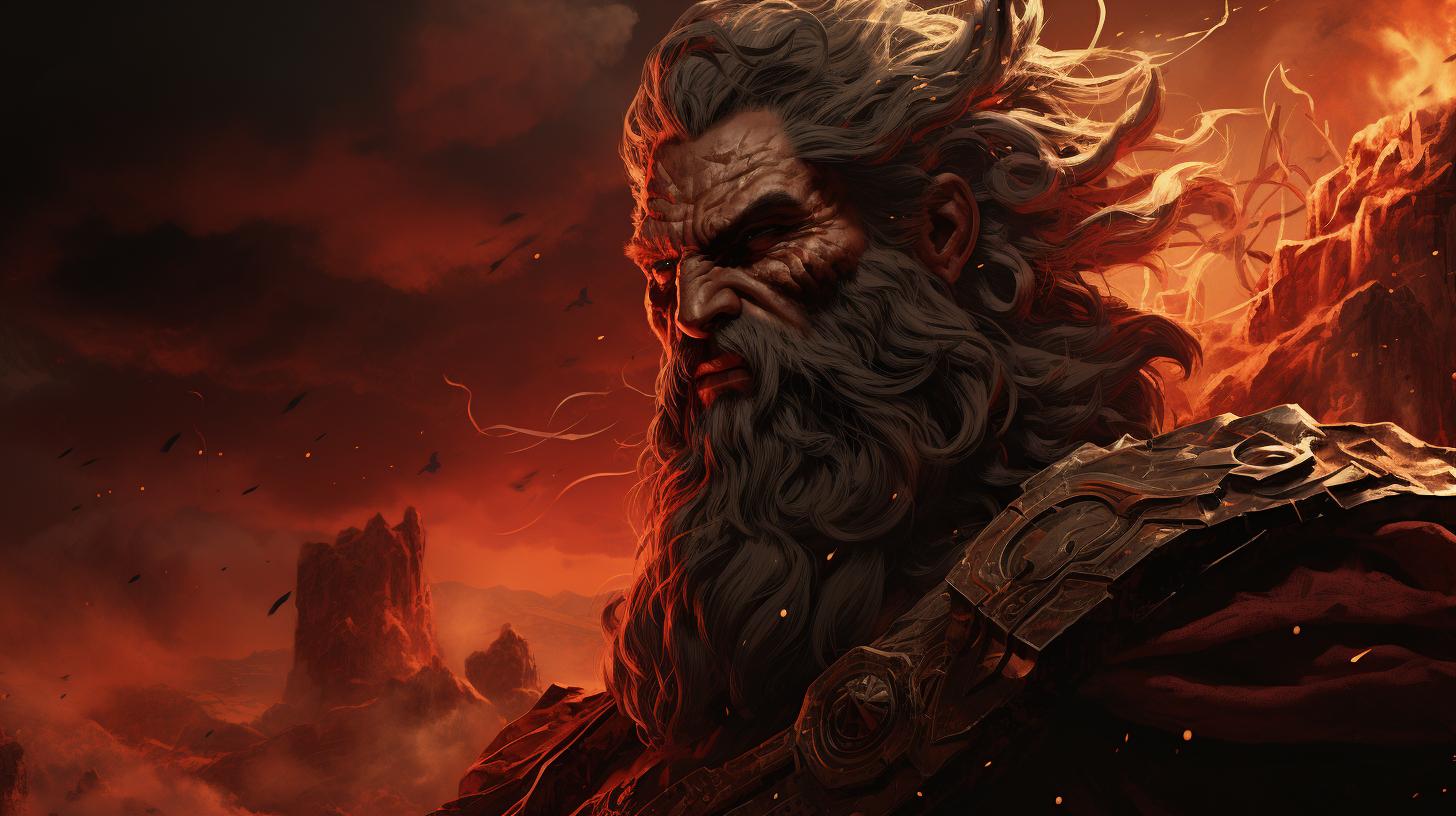
Phobos, the Greek god of fear, holds a significant role in Greek mythology. He is one of the sons of Ares, the god of war, and Aphrodite, the goddess of love.
Phobos, along with his brother Deimos, personify the terrifying aspects of fear and panic. In ancient Greece, festivals and ceremonies were dedicated to Phobos as a source of protection and divine guidance.
Throughout history, Phobos and Deimos have been depicted in classical art, symbolizing the fears of warriors on the battlefield. From astronomy to psychology, their influence extends into various domains, making them intriguing figures in Greek mythology.
Genealogy
In Greek mythology, the genealogy of Phobos, the god of fear, is intertwined with his father Ares, the god of war, and his mother Aphrodite, the goddess of love.
This section explores the familial connections and origins of Phobos and his brother Deimos.
Ares: The Father of Phobos and Deimos
Ares, one of the Twelve Olympians, is revered as the Greek god of war and courage. He is the son of Zeus and Hera, and his presence embodies the physical valor crucial for success in battle.
However, Ares also represents brutality and a thirst for blood, resulting in conflicting feelings among the Greeks.
Ares plays a limited role in Greek mythology, often being humiliated when he appears.
One infamous example is when Hephaestus exposes Ares’ affair with his wife Aphrodite and traps them in a net, bringing shame upon them in front of the other gods.
Phobos and Deimos: Children of Ares and Aphrodite
Phobos and Deimos, the sons of Ares and Aphrodite, personify fear and terror in Greek mythology. Phobos represents sudden fear, flight, and defeat, while Deimos symbolizes terror and panic.
They were born out of the union between Ares, the god of war, and Aphrodite, the goddess of love.
Accompanying their father to the battlefield, Phobos and Deimos unleashed fear upon their enemies and even struck fear into the hearts of the bravest warriors.
They also embody the fear of loss as children of Aphrodite, the goddess of love.
In classical art, Phobos and Deimos are often depicted as common youths, although Phobos may sometimes be portrayed with the head of a lion.
Their presence in battle strikes dread even in the most courageous fighters.
While Ares and his sons had complex roles in Greek mythology, their genealogy sheds light on the intricate relationships between gods associated with war, fear, and love.
Worship
In Greek mythology, Phobos, the god of fear, was revered and honored through various festivals and ceremonies. These events were held to pay tribute to Phobos and seek his protection in times of war and conflict.
Festivals and Ceremonies in Honor of Phobos
Throughout Greece, numerous cities and regions held annual festivals dedicated to Phobos. These festivities were marked by elaborate rituals, processions, and offerings to appease the god of fear. The goal was to invoke Phobos’ presence and ensure his assistance in instilling bravery and courage in warriors.
Participants would gather at temples and sacred sites to make sacrifices, perform prayers, and partake in feasts dedicated to Phobos. These events were crucial for fostering a sense of unity, patriotism, and invoking divine protection during times of conflict.
Phobos’ Role in Oracles and Divination
Phobos, being the god of fear, had a significant role in oracles and divination. In certain parts of ancient Greece, Phobos was revered as a deity with prophetic abilities. His influence extended into the realm of oracles, where his presence was sought to gain insights into the outcomes of battles and wars.
Practitioners of divination and oracles would perform rituals and invoke Phobos to gain guidance and foreknowledge about the fear and apprehension surrounding future conflicts. Phobos’ association with fear made him an integral part of the divinatory practices that aimed to understand and overcome the challenges of war.
Notably, Phobos’ role in oracles and divination highlights the deep connection between the god of fear and the uncertainties of warfare, emphasizing the Greeks’ perception of fear as a potent force that could shape the outcomes of battles.
- Elaborate festivals and ceremonies paid tribute to Phobos, the god of fear.
- These events aimed to seek protection and bravery in times of war and conflict.
- Annual festivals involved rituals, processions, and offerings to honor Phobos.
- Participants made sacrifices, performed prayers, and partook in feasts dedicated to Phobos.
- Phobos played a significant role in oracles and divination related to battles and wars.
- His prophetic abilities were sought for insights into the outcomes of conflicts.
- Practitioners of divination invoked Phobos for guidance and knowledge about the fear surrounding warfare.
- Phobos’ association with fear highlighted its profound influence on the uncertainties of war.
Depictions
Depictions of Phobos and Deimos in Greek mythology offer intriguing insights into their roles and symbolism.
Classical Art: Representations of Phobos and Deimos
In classical art, Phobos and Deimos were often depicted as young figures, symbolizing the embodiment of fear. They were typically shown accompanying their father Ares into battle, spreading terror in their wake.
These representations portrayed the fearsome nature of war and the psychological impact it had on warriors.
Artistic depictions commonly showcased Phobos and Deimos with fierce expressions, highlighting their role as catalysts for fear and panic.
Their presence in Greek art served as a vivid reminder of the emotional and psychological toll that warfare exacted.
Symbolism and Attributes of Phobos and Deimos
Phobos and Deimos held significant symbolism within Greek mythology, representing different aspects of fear and its effects. While Phobos symbolized sudden fear during battle, Deimos represented the prolonged terror experienced by soldiers before engaging in combat.
Phobos was occasionally depicted with the head of a lion, a visual representation of his ferocity and aggression. This symbolized the overwhelming dread that could paralyze even the bravest warriors.
They were often associated with their mother Aphrodite, the goddess of love.
This connection explored the intertwined relationship between fear and love, emphasizing the vulnerability that accompanies strong emotions.
As revered deities of fear, Phobos and Deimos struck fear into the hearts of both mortals and gods.
Their presence in ancient Greek art and mythology vividly showcased the impact of fear on human psychology and war.
Historical Reference
Phobos and Deimos in Ancient Greek Literature
In ancient Greek literature, Phobos and Deimos are frequently mentioned and play significant roles in various mythological tales. These two sons of Ares and Aphrodite are often depicted as the embodiment of fear and panic, causing dread and terror on the battlefield.
They are commonly portrayed accompanying their father to war, spreading fear among both mortals and gods alike.
Their presence is felt in Homer’s epic poem, the Iliad, where they are described as constant companions of their father, Ares, during the Trojan War. In this great conflict, Phobos and Deimos are depicted as relentless forces, instilling fear in the hearts of even the bravest warriors.
The sheer mention of their names struck terror into the souls of those who faced them.
Another notable reference to Phobos and Deimos can be found in the divine comedy, Theogony, written by Hesiod. Here, they are highlighted as essential components of the god of war, Ares, and personify the overwhelming power of fear that often accompanies conflict and chaos.
These characters serve as reminders of the emotional toll war takes on humanity.
Phobos and Deimos in Classical Mythological Texts
Beyond ancient Greek literature, the influence of Phobos and Deimos extends into classical mythological texts, cementing their status as formidable manifestations of fear. Their portrayal in these narratives emphasizes their ability to paralyze individuals with dread, showing the profound impact they have on the psychological well-being of mortals.
In the writings of Ovid, particularly in his work “Metamorphoses,” Phobos and Deimos continue to be emblematic of the terrors experienced during times of strife and conflict. Ovid explores the narrative of the Trojan War and the emotions evoked by its tumultuous events, often attributing the overwhelming anxiety felt by characters to the presence of these fear-inducing deities.
Additionally, Phobos and Deimos are recurrent figures in the plays of renowned playwrights such as Aeschylus and Euripides. Their inclusion in these dramatic works underscores their significance in Greek society, as their presence served to enhance the atmosphere of fear and tension onstage and highlight the inherent dangers of war and conflict.
- The Iliad by Homer
- Theogony by Hesiod
- Metamorphoses by Ovid
- Plays by Aeschylus and Euripides
Astronomy
Exploring the celestial realm, the realm of the gods, is essential to understanding Phobos and Deimos in Greek mythology. These two celestial bodies have fascinated astronomers for centuries, especially due to their intriguing connection to the planet Mars. Let’s delve into the captivating world of Phobos and Deimos, the Moons of Mars.
The Moons of Mars: Phobos and Deimos
Phobos and Deimos, the moons adorning the crimson skies of Mars, have long captured the imagination of astronomers.
Named after the gods of fear and panic, these diminutive celestial bodies have an enchanting allure. First discovered in 1877 by American astronomer Asaph Hall, Phobos and Deimos are intriguing companions to the Red Planet.
Phobos, the larger of the two moons, orbits Mars at an astonishingly close distance. In fact, it is the closest moon to its parent planet in the entire solar system.
Its irregular shape and rough surface evoke a sense of mystique and awe. Scientists believe Phobos may actually be a captured asteroid due to its unique characteristics.
Deimos, on the other hand, is smaller and resides farther from Mars compared to Phobos.
It, too, possesses an irregular shape and a landscape dotted with craters. Both moons have low gravitational forces, making them prime destinations for future space exploration and potential colonization.
Scientific and Astronomical Insights on Phobos and Deimos
- The moons’ origins: Scientists theorize that Phobos and Deimos may have originated from a ring of debris that encircled Mars after a massive impact with another celestial body.
- Composition: Spectral analysis suggests that they are composed of carbon-rich rocky materials, akin to certain types of meteorites found on Earth.
- Space missions: Several space missions, such as NASA’s Mars Global Surveyor and Europe’s Mars Express, have provided valuable data and imagery of these enigmatic moons.
- Future prospects: The study of Phobos and Deimos continues to captivate scientists, with proposed missions aiming to collect samples from these moons and shed further light on their mysteries.
As we gaze up at the night sky, contemplating the vastness of the cosmos, the presence of Phobos and Deimos reminds us of the enduring influence of Greek mythology.
These celestial companions, forever intertwined with the tales of fear and war, offer a glimpse into the rich tapestry of ancient beliefs and scientific exploration.
Psychology
Phobos and Deimos, the personifications of fear in Greek mythology, hold significant psychological interpretations in understanding the human mind. Delving into their psychological meanings offers insights into the complex nature of fear and its impact on individuals.
Phobos and Deimos in Psychological Interpretations
In psychological interpretations, Phobos represents the fear that triggers the fight-or-flight response. This primal instinctual fear can manifest in different ways, affecting individuals’ behaviors and decision-making processes. The presence of Phobos in one’s psyche often reflects the underlying anxieties and phobias that can influence daily life.
Deimos, on the other hand, symbolizes the paralyzing terror that overwhelms individuals, rendering them unable to respond effectively. This extreme fear can lead to a state of psychological impasse, hindering one’s ability to take action and confront their fears.
Both Phobos and Deimos play vital roles in understanding fears and anxieties within the realm of psychology. Researchers and psychologists study these archetypal fears to explore the origins and impacts of various phobias, post-traumatic stress disorder, and other fear-related conditions.
The Fear Factor: Phobos and Deimos’ Impact on the Human Mind
The fear instilled by Phobos and Deimos can have profound effects on the human mind and behavior. Their presence can evoke intense emotions and trigger physiological responses such as increased heart rate, adrenaline surges, and heightened alertness.
Phobos and Deimos’ influence on the psyche can lead to avoidance behaviors, as individuals seek to protect themselves from perceived threats. These fears can also shape beliefs and perceptions, influencing how individuals navigate their environments and interact with others.
Understanding the impact of Phobos and Deimos on the human mind provides valuable insights into anxiety disorders, trauma, and fear-based responses. By exploring the depths of these psychological constructs, researchers and mental health professionals can offer effective strategies for managing and overcoming fear-related challenges.
As our understanding of the human mind continues to evolve, the intriguing presence of Phobos and Deimos in Greek mythology stands as a reminder of the complex and multifaceted nature of fear within our psychological landscape.
Deimos and Phobos in Sparta
Deimos and Phobos, the gods of fear in Greek mythology, played significant roles in the city-state of Sparta. Their presence in Spartan society was deeply intertwined with the principles of warfare and the Spartan way of life.
Let us explore their roles and the rituals associated with these fearsome deities.
The Spartan Perspective: Phobos and Deimos’ Role in Warfare
In the eyes of the Spartans, Phobos and Deimos held immense power over the outcome of battles. The presence of these gods was believed to instill fear and terror in the hearts of their enemies.
The Spartan warriors revered Phobos and Deimos as symbols of the brutality and might necessary to achieve victory in warfare.
The Spartans firmly believed that the fear induced by Phobos and Deimos in their adversaries gave them a psychological advantage on the battlefield.
This fear would cause hesitation, weakening the resolve of their opponents and ultimately helping the Spartans emerge triumphant.
Spartan Rituals and Practices Associated with Phobos and Deimos
Spartan warriors performed various rituals and practices to honor Phobos and Deimos and invoke their divine protection. These rituals aimed to strengthen the soldiers’ resolve, instill fearlessness, and ensure victory in battle.
- Warrior Chants: The Spartans engaged in fierce war chants, reciting songs and hymns to invoke the presence of Phobos and Deimos. These chants aimed to inspire courage and instill fear in the hearts of their enemies.
- Shield Decorations: Spartan warriors adorned their shields with intricate designs symbolizing Phobos and Deimos. These depictions served as a constant reminder of the gods’ presence and the fear they could instill.
- Offerings and Sacrifices: Before heading into battle, the Spartans offered sacrifices and performed rituals to honor Phobos and Deimos. These offerings included animals and other valuables, seeking favor and protection from the gods of fear.
- Spartan Battle Formations: The Spartans developed strategic battle formations, such as the famous phalanx, that emphasized the power and unity of their forces.
These formations aimed to inspire fear and intimidation in their adversaries, utilizing the reputation of Phobos and Deimos.
The rituals and practices associated with Phobos and Deimos were deeply ingrained in Spartan society.
They played a crucial role in shaping the Spartan warriors’ mindset, fostering fearlessness, and fortifying their determination to achieve victory in the face of adversity.
Understanding the significance of Phobos and Deimos within the context of Spartan warfare provides insight into the Spartan mindset and their unparalleled military prowess.
Fan Feed
Explore the captivating influence of Phobos, the god of fear in Greek mythology, on popular culture, contemporary art, and media.
Fan Theories and Interpretations of Phobos in Popular Culture
Dive into the realm of fan theories and interpretations surrounding Phobos’ enigmatic character.
Fans have speculated on various aspects of Phobos’ presence in popular culture, offering intriguing perspectives on his role as the god of fear. These theories often explore how Phobos weaves into different narratives, from literature to film and beyond.
Some fans believe that Phobos serves as a representation of our inner fears and anxieties, while others see him as a symbol of the darkness that lurks within humanity.
Phobos’ Influence on Contemporary Art and Media
The reach of Phobos extends into the realm of contemporary art and media, where his distinctive characteristics inspire artists and creators.
From paintings to sculptures and digital artwork, Phobos’ presence can be felt in various visual mediums. His portrayal captures the essence of fear, evoking intense emotions and conveying the power he holds over humanity.
Additionally, Phobos’ unique attributes and mythology have influenced writers, filmmakers, and musicians, who have incorporated his themes into their works to evoke a sense of terror, suspense, and psychological depth.
- The integration of Phobos’ symbol into album covers, reflecting artistic interpretations of fear in music
- Phobos as a recurring character in contemporary novels, revealing his ongoing relevance as a figure of terror
- Phobos-inspired video games that explore the darkest corners of the human psyche
- Award-winning films and television series that incorporate Phobos’ mythos to enhance their narratives with psychological tension
- Phobos-themed merchandise and collectibles that allow fans to embrace their fascination with the god of fear
Phobos’ enduring presence in popular culture demonstrates the enduring allure and fascination with fear and its impact on human experiences.
.











